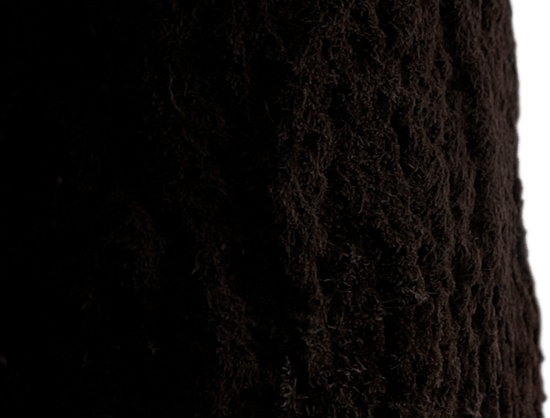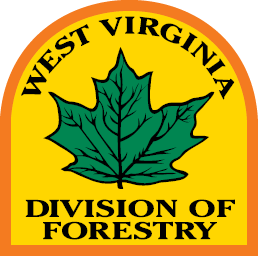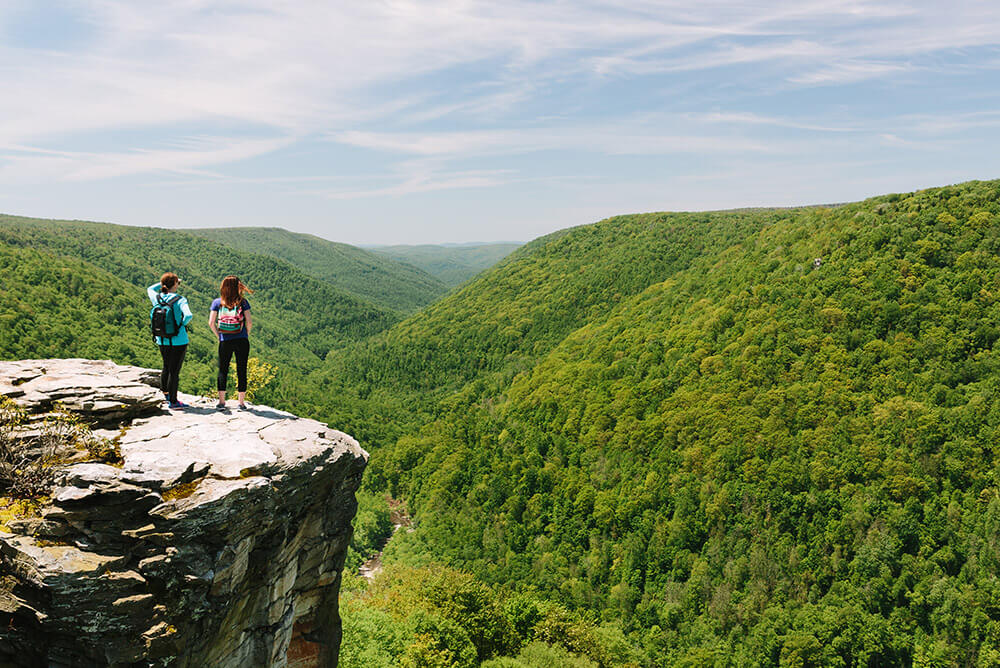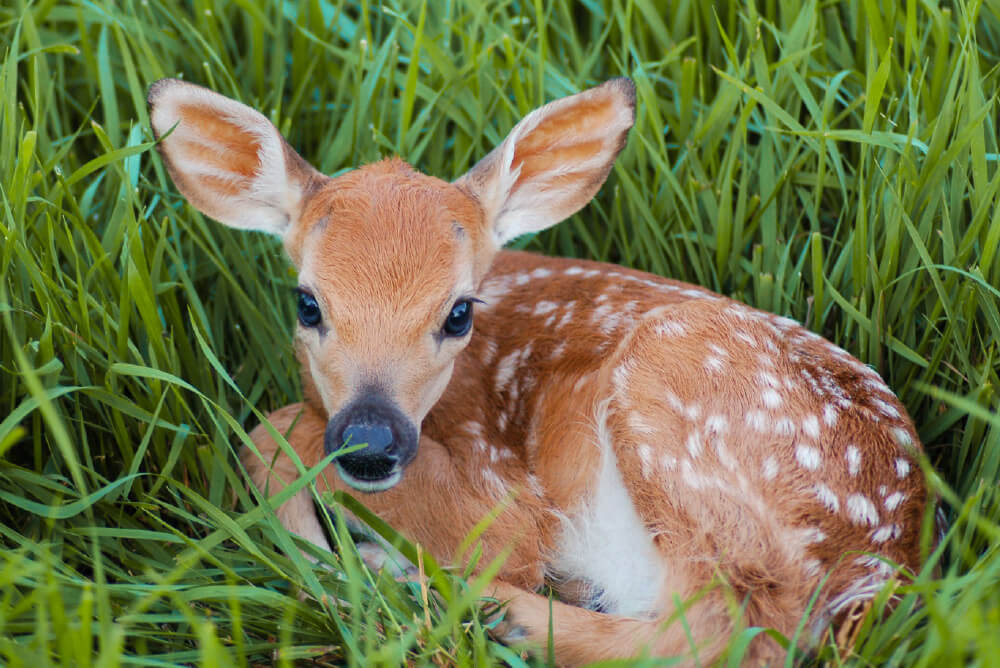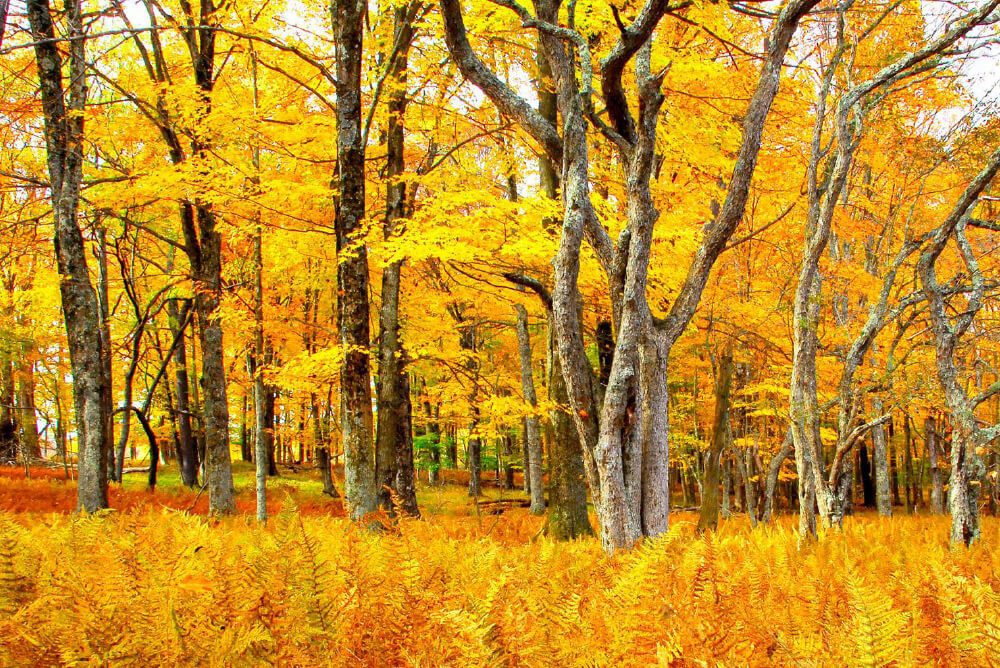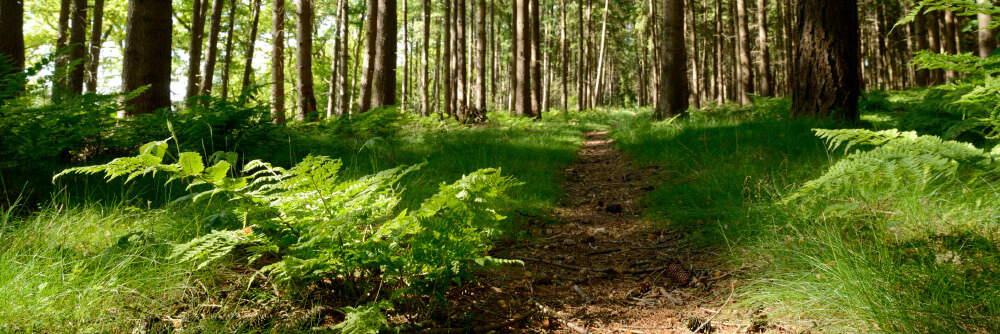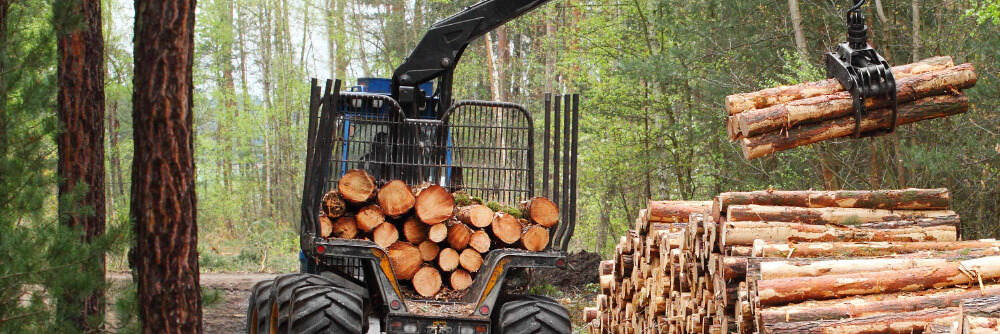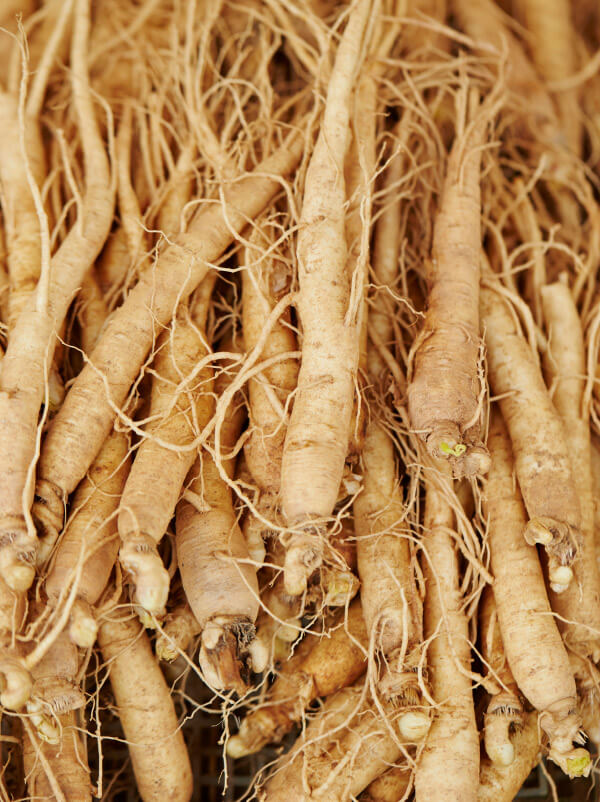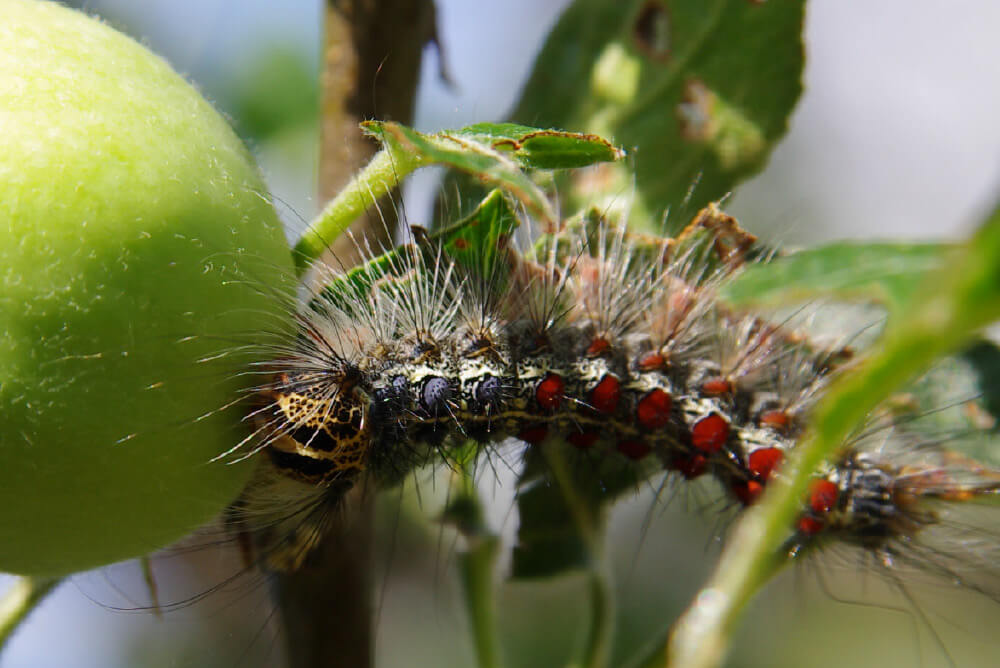West Virginia Ginseng Digging
West Virginia’s hills are filled with gold – a gold root, that is. The lucrative root, known as ginseng, brings out treasure hunters every year from September 1 through November 30 to dig it up and sell for a pretty penny. The Division of Forestry closely monitors the harvesting of this valuable resource to protect ginseng supplies for years to come.
About Ginseng
A native plant of West Virginia, ginseng grows in all 55 counties of the State but is prevalent in cool, moist forests. This perennial herb is highly prized for its large, fleshy roots that grow from 2″ to 6″ in length and ?? to ?? in thickness. Ginseng is slow growing with seeds that take two years to germinate.
Ginseng has been harvested as a cash crop in West Virginia for at least 200 years. It has been used for centuries in North America and Asia. Allegedly teas, soups and medicines made from ginseng roots cure sickness, increase vitality, relieve mental and physical fatigue and prolong life. In China the roots themselves are often chewed.
About Digging
Digging Season
West Virginia Ginseng Season runs from September 1 through November 30 every year. Diggers have until March 31 of the following calendar year to sell to a registered West Virginia ginseng dealer or have roots weigh-receipted at one of the Division of Forestry weigh stations.
Possession of ginseng roots is prohibited from April 1 through Aug. 31 without a weight-receipt from the DOF.
Contact Charles Copeland for more information or with questions at Assistant State Forester for Landowner Assistance/Ginseng at [email protected] or (304) 558-2788 ext 24876 or option 5.
304-352-4876 (Direct)
Rules for Digging
Digging on state forest land is prohibited.
Digging on private land without prior written consent is prohibited.
Digging on your own land is permitted during the digging season.
Dig ginseng roots only when the plant has three or more prongs (with no fewer than 15 leaflets) indicating the plant is probably at least five years old and capable of producing fertile berries plant seeds at the root spot.
The berries of the plant must be red in color indicating that they are mature.
All ginseng wishing to be held till the next season must properly weight receipted.
Contact Charles Copeland for more information or with questions at Assistant State Forester for Landowner Assistance/Ginseng at [email protected] or (304) 558-2788 ext 24876 or option 5.
304-352-4876 (Direct)
More Information for Ginseng Digging
The following links provide resources and information about digging ginseng in West Virginia:
Wild American Ginseng – Information for Dealers and Exporters
Frequently Asked Questions
What State laws regulate ginseng?
West Virginia Code 19-1A-3a mandates that the Division of Forestry weigh and certify all ginseng roots dug in the state. Ginseng plants must be at least 5 years old or older and have at least 3 prongs before they can be harvested. Seeds from the plant must be planted on the site of the harvest. Ginseng must be certified before leaving the boundaries of the state. Only registered dealers can certify ginseng.
What Federal laws regulate ginseng?
Requirements for the export of wild ginseng out of the country are established by the U.S. Fish & Wildlife Service. All ginseng plants must be at least 5 years of age and have at least 3 prongs before being harvested and therefore eligible for export.
How do I determine the age of ginseng roots
The age of a ginseng plant can be determined by looking at the base of the plant stem, where bud scars occur. A 5 year old ginseng root will have at least 4 scars; the first year the root does not produce a scar.
When can I dig ginseng?
The West Virginia ginseng digging season runs from September 1 through November 30 of each year.
Do I need a permit or license to dig ginseng?
No.
When can I sell my ginseng to a registered dealer?
The buying of green ginseng can start on September 1. The buying of dry ginseng should start after September 15 of each year. The selling season ends March 31 of each year.
Must I sell my ginseng this year or can I hold it until next year?
In order to be able to hold or keep ginseng from season to season, you must have a weight receipt. A weight receipt is a record of the ginseng dug during the current year and may be obtained from a weigh station. The original weight receipt must accompany the ginseng when it is eventually sold.
Can I dig ginseng on anybody's property?
An individual must have written permission to dig on private property. If that individual is caught digging ginseng illegally, he or she can be prosecuted via the Trespass Law.
Can I dig ginseng on public lands?
Digging of ginseng is not permitted on State Forests, State Parks, or other state-owned public lands. Permits to dig ginseng on the Monongahela National Forest may be obtained by calling (304) 636-1800. There is a fee associated with these permits.
Can I grow ginseng on my own property?
Yes. A determination must be done before planting any ginseng on your property. The determination is to make sure there is no wild ginseng in the area you are wanting to plant. Determinations are done between April 15 and June 15 of each year. For more information and to request a form for a determination to be done please contact Contact Charles Copeland for more information or with questions at Assistant State Forester for Landowner Assistance/Ginseng at [email protected] or (304) 558-2788 ext 24876 or option 5. 304-352-4876 (Direct). After the determination has been done, you can become a ginseng grower and a permit will be issued.
How do I get my ginseng certified?
To get ginseng certified you must be a registered dealer.
How do I get my ginseng weight receipted?
You must call one of our weigh stations and make an appointment to have your ginseng weight receipted.
What is a weight receipt?
A weight receipt is a record of the ginseng dug during the current year. This is necessary when you would like to hold it over to the next digging/buying season.
Who gets the weight receipt?
You get the white copy of the weight receipt to go with the ginseng. Please remember that if you sell the ginseng the white copy of the weight receipt MUST accompany the ginseng that is being sold. The dealer will send the weight receipt in with his 30-day report.
If a dealer has requested a weight receipt, the dealer gets the white and pink copy. White to stay with the ginseng; the pink to go with his year-end report to the Division of Forestry.
How can I become a registered dealer?
Anyone can become a registered dealer if the prerequisites are met.
- Obtain a West Virginia Business License from the State Tax Department
- If employing others, obtain a Workers’ Compensation Certificate of Insurance. For assistance, contact the Insurance Commission at 304-558-6279 ext. 1247,3200,1232 or 1229 or contact a Workers? Compensation insurance company.
- Maintain a certificate in good standing or letter stating compliance from Unemployment Compensation. Contact the Status Determination Unit at 304-558-2677.
- Purchase a certified set of scales. Contact the Dept. of Weights and Measures at 304-722-0602 to certify your scale. The Division of Forestry submits a list of dealers to this department yearly.
- Apply for dealership with the WV Division of Forestry.?
Call 304-558-2788 for an application.
